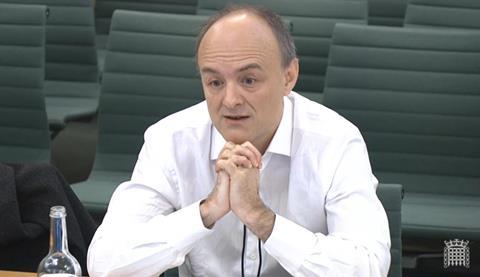Writer, Becky Hunter-Kelm looks at how we, as Christian women, should react in the light of such blatant misogyny from leaders such as Dominic Cummings.

In early November this year, a Korean woman was working late at a convenience store in Jinju, South Korea. She was serving on the til and arranging produce on the shelves. Oh, and she had short hair.
A man in his 20s then entered the store and violently attacked the woman, punching and kicking her. He then turned on another male customer in his 50s who tried to help. He continued to assault the woman until police arrived on the scene. The woman sustained ‘serious ear and ligament damage’ (BBC)
After the police arrived, it transpired the man had attacked the woman because she had short hair, so he assumed she must be a feminist, stating: ‘I’m a male chauvinist, and I think feminists deserve to be assaulted,’
Male Chauvinist: A man who believes that women are naturally less important, intelligent, or able than men and does not treat men and women equally (Cambridge Dictionary).
The BBC report concluded that ‘Women with short, cropped hair have been the target of attacks before in South Korea - where many misogynistic commentators associate the hairstyle with feminism, a term that has been equated with being a man-hater.’
Misogynist: ‘A man who hates women or believes that men are much better than women’ (Cambridge Dictionary).
Misogyny is a form of hatred and a sin. It is both painful and deeply disturbing to see it manifest in violence and in government leadership.
This violent attack was a shocking display of misogyny and, sadly, like all forms of discrimination, isn’t limited to just South Korea. A few weeks before the Korean incident, the UK government’s Covid Public inquiry of Downing Street revealed ‘aggressive, foul-mouthed and misogynistic” abuse after messages showed Dominic Cummings tried to sack the senior civil servant Helen MacNamara, saying No 10 was “dodging stilettos from that @>#%!’. (The Guardian).
Misogyny is a form of hatred and a sin. It is both painful and deeply disturbing to see it manifest in violence and in government leadership. Misogyny is a direct contradiction to God’s second greatest commandment to ‘love your neighbour as yourself.’ (Mark 12:31). God made men and women equal, and sexism and misogyny (along with all other forms of prejudice and discrimination) entered the world as sin after sin entered the world in Genesis.
Our sin is the reason Jesus came: to save us and forgive us our sin: ‘But God demonstrates his own love for us in this: While we were still sinners, Christ died for us. Since we have now been justified by his blood, how much more shall we be saved from God’s wrath through him!’ (Romans 8:5-8)
The Gospel is good news for misogyny because of Jesus.
Jesus was born into a sexist and patriarchal society where newborn baby girls were not valued and left outside to die.
Jesus loved, defended, and cared for women
Jesus goes against this hatred and disregard of women by having close female friends. He loved women and invited them to come and sit and learn the scriptures with the men (Mary in Luke 10:38-42).
Jesus loved, defended, and cared for women, and one very powerful example of this is when Jesus meets the Samaritan woman at the well in John 4:1-42. He approaches a ‘sinful woman’ who is a victim of misogyny. She is hated and despised by society, and Jesus honours her by asking her to get him a drink of water. He then offers her ‘living water’, and she joyfully receives his love and salvation, resulting in a revival in her town!
Read more on politics
Standing up for faith in politics
Is there space for faith in politics?
Christians don’t have to avoid politics but here’s three things to help you debate in a Godly way
Then, of course, there’s the role of women in the main event: the Resurrection. Who did God select to be the first witnesses of the resurrected saviour of the world? It wasn’t the most honoured in society, the male Jewish religious leaders; it was women- even at a time in history when women were not even regarded as legitimate witnesses in court.
Jesus is our example when it comes to how we should respond to misogyny in the world today.
As a female church leader, I’m challenged to watch my own heart when it comes to seeing sexism and misogyny in the world and, sadly, in the church.
We need to pray for misogynists because we are called to ‘pray for our enemies.’ We need to forgive misogynists because we have been forgiven much. We also need to confront misogyny because that’s what Jesus did. Let’s take a stand against misogyny both in the workplace and in the church by ensuring anti-discrimination policies exist and are adhered to.
Let’s challenge and condemn unhelpful portrayal of women in the media. Let’s take action and support investigations like the Covid enquiry or any other incident that even hints toward hatred of women. And most of all, let’s point others to the example of Jesus, who loved and honoured women equally to men.































No comments yet